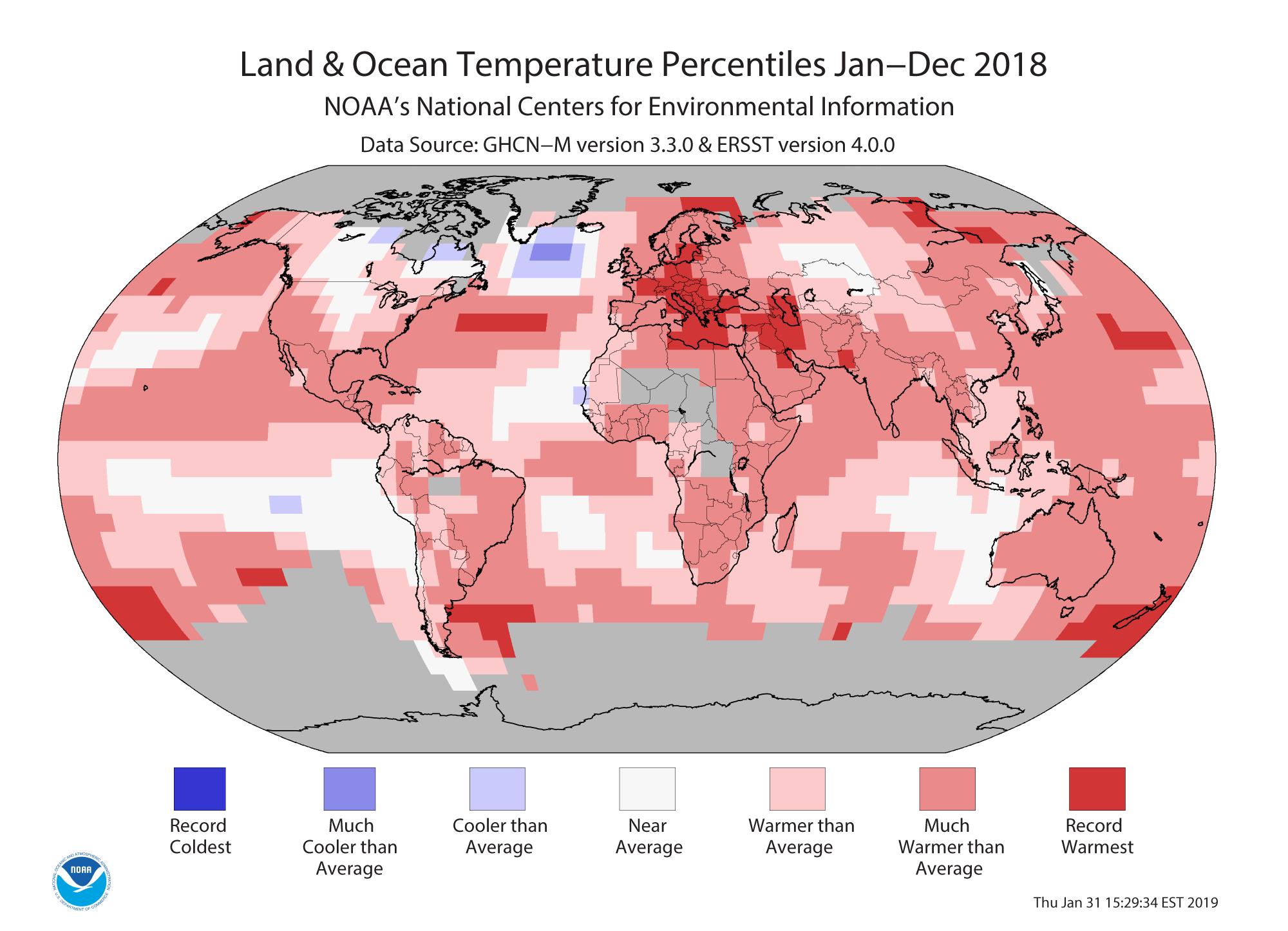
Last year was one of the warmest on record globally, NASA and the National Oceanic and Atmospheric Administration announced this week. The United States climate conditions report for 2018 was released Wednesday with details about the areas that saw record-breaking temperature and precipitation levels throughout 2018, nationally and internationally.
Globally, temperatures for 2018 were about 1.5 degrees Fahrenheit above the average from 1951 to 1980. The last five years were the warmest on modern record, according to NASA. Last year fell behind 2016, which sits in the top spot as the warmest, followed by 2017, 2015 and 2018.
The warming is widely considered a result of the increased emissions of greenhouse gases and carbon dioxide from human activity into the atmosphere. That warming is causing significant changes in the Arctic, especially where the loss of sea ice continued in 2018 as it has in previous years, contributing to sea-level rise.
The calculations for the 2018 measurements come with a 95 percent certainty from NASA. The data was collected from more than 6,000 weather stations, sea-surface temperature measurements from ship and buoy stations, and information from stations based in Antarctica.
One of the key trends the researchers who compiled the data found was that the low morning temperatures didn't seem to reach the regular lows in 2018 as they have historically. Those warmer morning temperatures are driving warmer days and warming overall.
"The key message is, the planet is warming, the long-term trends are extremely robust. There's no question about those trends existing however we slice it, and our understanding of why those trends are occurring is also robust," Gavin Schmidt, director of NASA's Goddard Institute for Space Studies in New York said Wednesday.
In addition to warming temperatures, the report also detailed an increase in precipitation. In the contiguous U.S., there were nine states that had their wettest year on record, with record-breaking rainfall. Some areas across the country even saw more than 100 inches of rain for the first time in a calendar year. This all happened while other parts of the country experienced drought and significantly more dry conditions than usual.
Along with the increased precipitation in some areas and warming temperatures, there were more weather and climate disasters that caused damage and losses of $1 billion or more. NOAA is reluctant to tie the warming conditions or the changing climate to this increase in expensive disasters, Schmidt said.
Uncommon Knowledge
Newsweek is committed to challenging conventional wisdom and finding connections in the search for common ground.
Newsweek is committed to challenging conventional wisdom and finding connections in the search for common ground.
About the writer
Nina was a breaking news reporter. She previously worked at Business Insider, The Boston Globe, and Boston.com.
To read how Newsweek uses AI as a newsroom tool, Click here.








